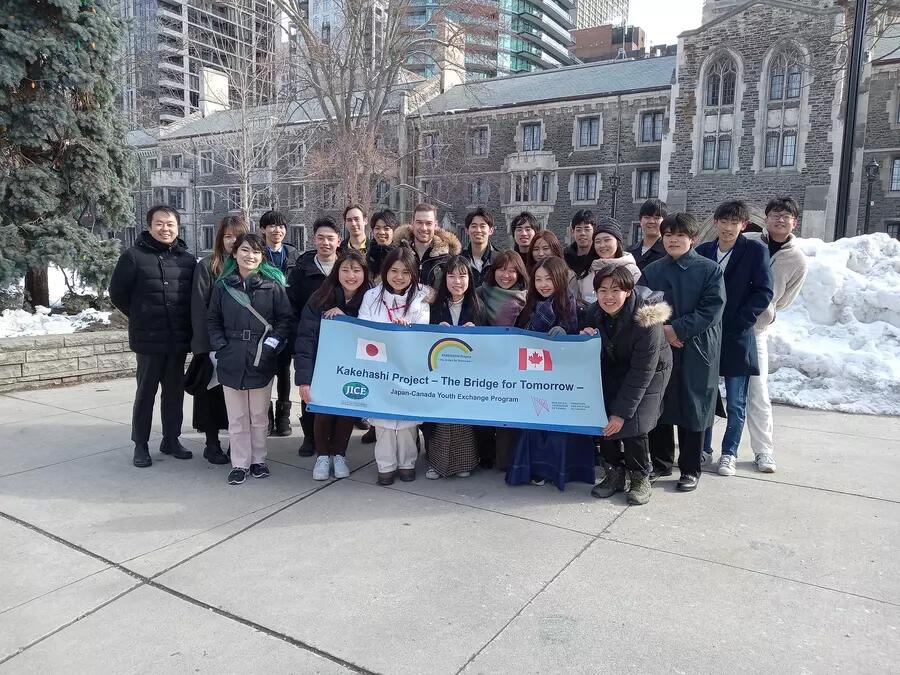
Event Report: 2023 Kakehashi Academic Day
|
Kakehashi Project - Background The Kakehashi Project is funded by the Ministry of Foreign Affairs of Japan which is responsible for conducting Japan’s Friendship Ties Programs, which send approximately 5,000 people to or from Japan each year. The Japanese word "kakehashi" means "bridge," which symbolizes the hope that participants will form lasting relationships with Japan and its people, and serve as bridges between nations and cultures. Participants who travel to Japan are encouraged to share their experiences and discoveries with their networks at home, and contribute to greater appreciation of Japanese culture worldwide. The University of Toronto, through the Centre for the Study of Global Japan, was able to nominate a delegation of 15 university students to the 2023 Kakehashi Project in February, welcoming the joyous return of the Project that had been previously halted due to the COVID-19 pandemic. |
The Centre for the Study of Global Japan was excited to welcome students from Tohoku University and Kanda University for International Studies on March 14, 2023 for the Academic Day of their Kakehashi exchange program. For many students it was their first time abroad and seeing what an international university looked like. To acknowledge the curiosity students had about the University of Toronto, the day started with a guided tour of the St. George campus, where UofT 2023 Kakehashi Alumni lead the group of about 30 Japanese students to notable spots on campus such as The Fisher Rare Book Library, Hart House, and Convocation Hall.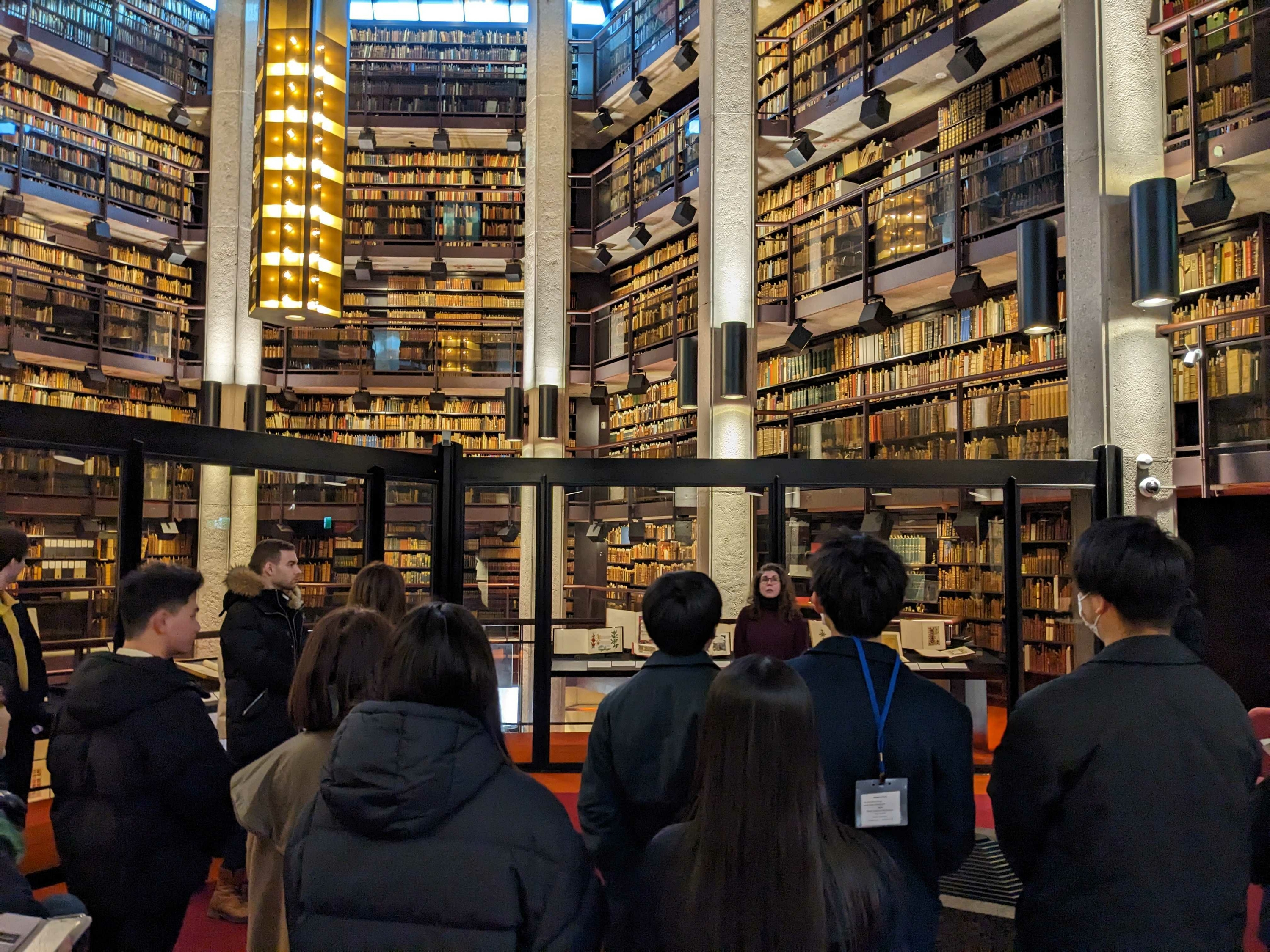
After the tour and a quick break for refreshments, the student groups from their respective universities delivered presentations for their Canadian counterparts, aimed at educating the audience about contemporary Japanese issues and historic cultural practices. The students representing Kanda University of International Studies presented a country profile about Japan, detailing aspects of the economy, political structure, food, and religion. The students from Tohoku University presented on the importance of traditional Japanese cultural practices such as calligraphy and origami, later leading a step-by-step guide on how to fold popular origami designs for the Canadian students. After the presentations a break for lunch occurred, where Japanese students got to mingle with Canadian students and ask them questions about what it is like to study at the University of Toronto, and living in Canada more generally. 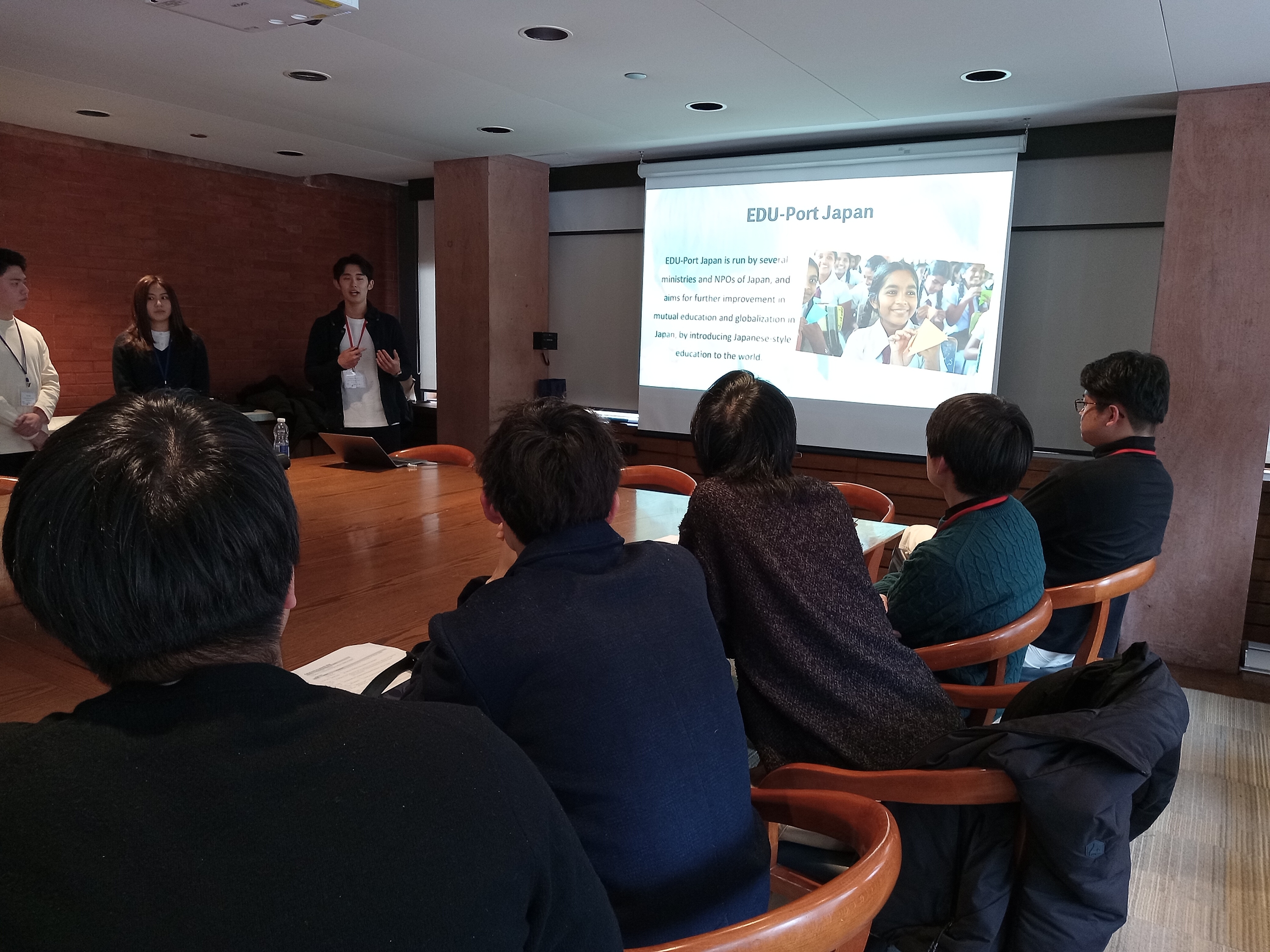
The next stop of the day saw all students travel to the Hart House Art Museum, where students viewed the exhibits entitled “THE COUNTER/SELF” and “Conceptions of White”. “THE COUNTER/SELF” exhibit brought together a group of artists who created and embodied imaginative alter egos to examine, perform and subvert identity constructs and politics in the Canadian context, with a special focus on the experience of Indigenous artists. “Conceptions of White” was an exhibition aimed at offering context and nuanced perspectives that helped viewers grapple with the role White identity has played in shaping Canadian history, with emphasis placed on the lived realities and experiences of Black Canadians. Students were very curious about both exhibits and asked museum curators several questions, deepening their understanding of how the country of 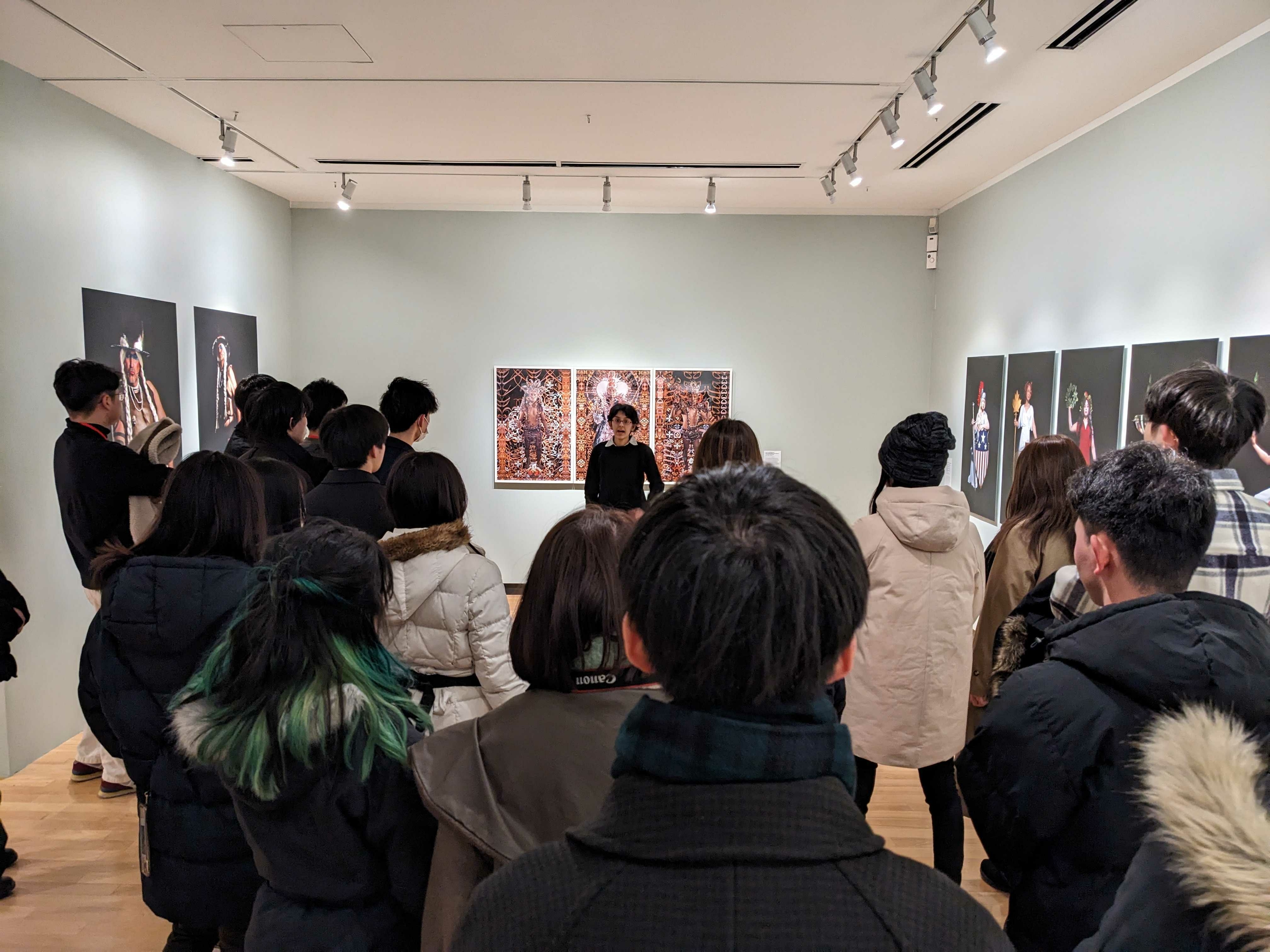 Canada has changed and adapted throughout history.
Canada has changed and adapted throughout history.
The last portion of the day was back at the Munk School of Global Affairs & Public Policy where Professor Rie Kijima gave a presentation to Japanese students about her experience researching global education and the potential benefits of Japan incorporating STEAM learning into school curriculums. After the presentation there was a lively question and answer period with Professor Kijima, where students asked questions ranging from her experience as a Japanese academic to how she was able to find her passion for education. 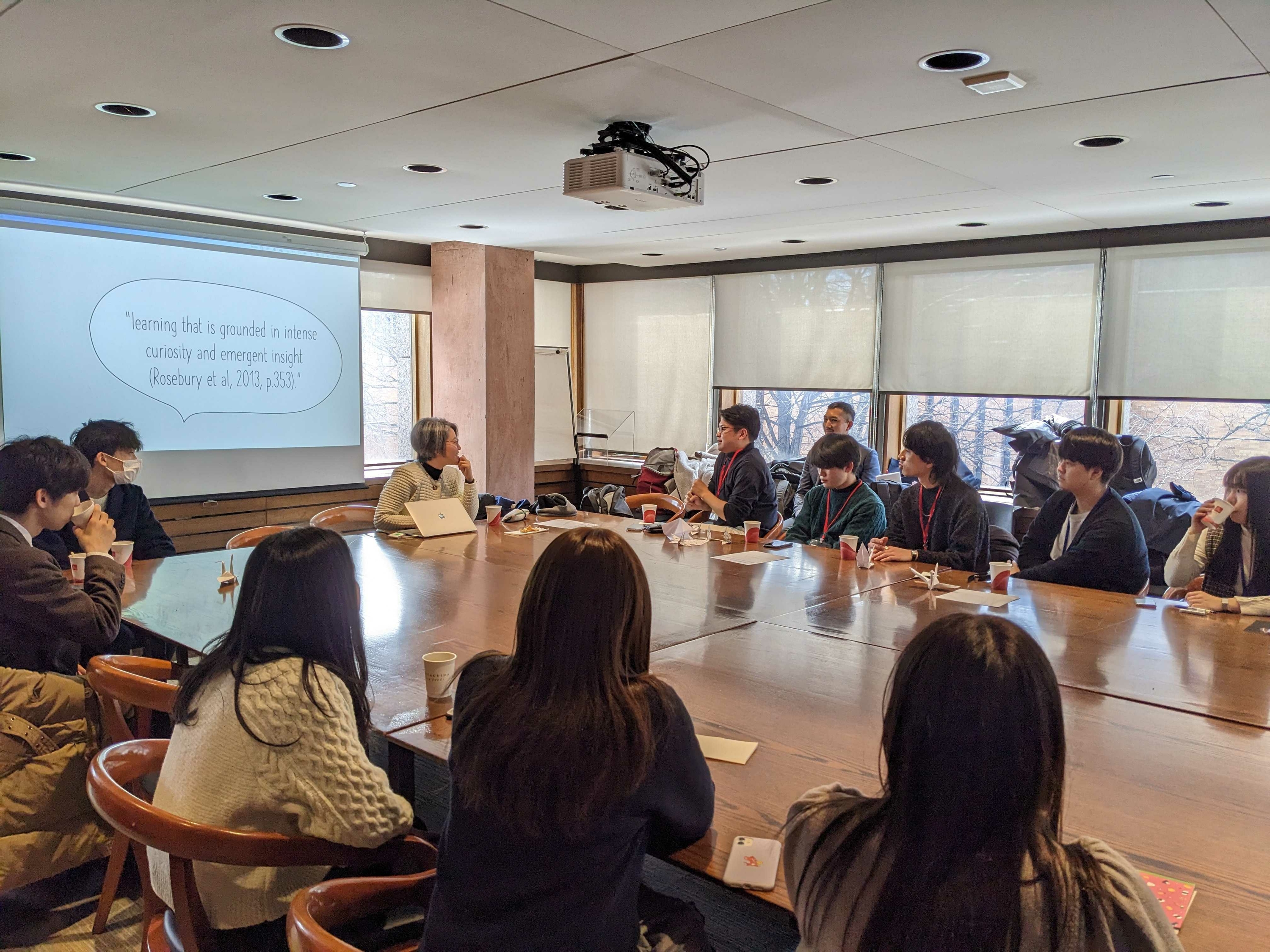
The Centre for the Study of Global Japan would like to thank the students from Tohoku University and Kanda University of International Studies for their engaged participation throughout the day, and for the participation of several UofT 2023 Kakehashi Alumni in the day’s programming. The Centre strongly welcomes the return of the Kakehashi Project and is excited to host future delegations of Japanese participants for years to come.

